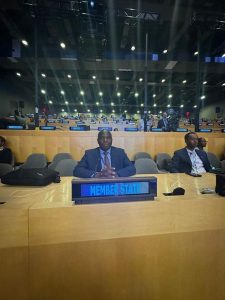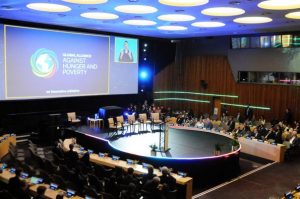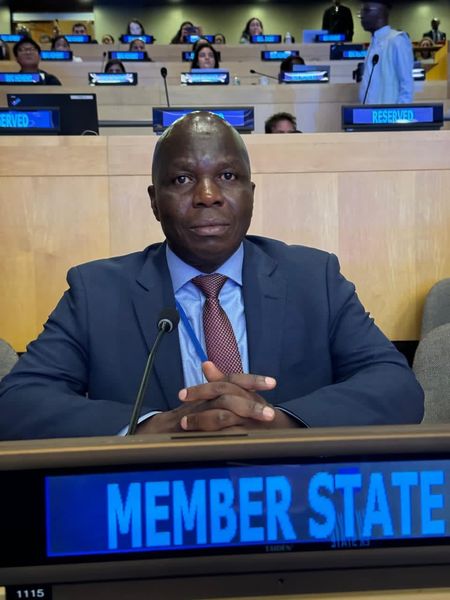PS Planning attends the SDGs Moment Meeting
On 24th September 2024, Mr. James Muhati, Principal Secretary,State Department for Economic Planning, attended and represented the country at the 2024 SDG Moment themed, “Driving Just Transitions for SDG Acceleration”. The 2024 SDG Moment aimed at highlighting the role of political leadership as well as SDG investments and partnerships in advancing three key transitions: food systems transformation; the renewable energy revolution; and digital connectivity.
The SDGs represent a bold vision: a commitment to a better, healthier, safer and more prosperous and sustainable future for all. Though several milestones have been celebrated globally including: reduction of child mortality rates; prevention of new HIV infections; increased access to renewable energy and broadband; and greater gender parity across education systems, reports have generally shown that the SDGs are facing massive headwinds with more than 4 out of 5 SDG targets being off track.
Towards implementation of the SDGs, countries have been constrained by limited fiscal space, inadequate domestic resources, debt burden, tightened global financial conditions and slow economic growth. This has affected both the ability to respond to global shocks and engage in sustainable development needs.
The 2024 SDG Moment therefore served as a wakeup call to world leaders to get things done and done fast enough to make significant progress on the SDGs between now and 2030.
Leaders at the 2024 SDGs Moment reiterated that transformation is not only possible but essential. Most emphasized that failure to secure peace, confront climate change and enhance international finance continue to undermine development.
Thus, the acceleration and path towards 2030 must be driven byagents with multiplier effects such as leveraging on youth for positive change as for the youth, change is the only constant; empowering women for efficient and effective action; and taking concrete actions to mitigate climate change.
Unlocking catalytic investments while focusing on areas that unleash most synergies is crucial and will require reforms in funding architecture and financial institutions to make them fit for purpose. Lastly, political goodwill and commitment will provide both linear and nonlinear solutions to the conundrum as to whether the world is getting better or better fast enough to achieve what is right.






